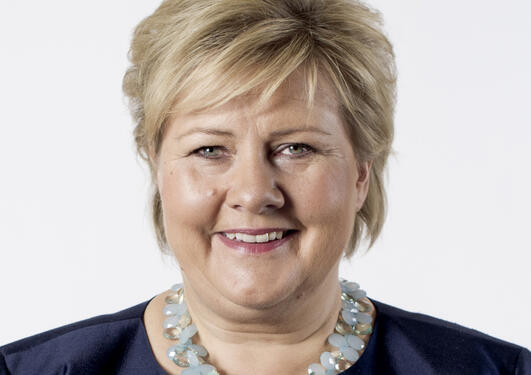Morning coffee and registration
09:00 – 10:00
Conference opening
10:00 – 10:30
Professor Dag Rune Olsen, Rector, University of Bergen.
Minister of Research and Higher Education Iselin Nybø, Government of Norway.
Professor Annelin Eriksen, Vice-Rector for Global Relations, University of Bergen.
Panel 1: Universities and the role of knowledge in shaping and implementing the SDGs
10:30 – 12:00
Dr. Katherine Richardson
Professor of Biological Oceanography, University of Copenhagen, and member of the group of eminent scientists and experts who will prepare the UN Global Sustainable Development Report.
Dr. Shantanu Mukherjee
Chief, Policy and Analysis Branch, Division for Sustainable Development, United Nations Department of Economic and Social Affairs (UN-DESA).
Dr. Anna Nordén
Project Manager, SDSN Northern Europe, Centre for Environment and Sustainability (GMV), Chalmers University of Technology and University of Gothenburg, Sweden.
Dr. Tore Furevik
Professor, Geophysical Institute, and Director of the Bjerknes Centre for Climate Research, University of Bergen (UiB).
Moderator: Professor Inga Berre, Department of Mathematics, University of Bergen (UiB).
In his letter of May 2017 to Leaders of Universities and other higher education institutions around the World, then President of the United Nations General Assembly, Peter Thomson, emphasized the importance of Agenda 2030 and the SDGs: “Their universality, their integrated nature, and most importantly, the logic behind them”. His request was to “make these goals an integral part of research, teaching and study”. The 17 SDGs and how they interact as a whole ask for a new kind of knowledge. Interlinking the goals challenges established disciplinary borders, and opens avenues for creative and innovative interdisciplinary cooperation. How should universities use and channel research and education for best to promote relevant knowledge in approaching and implementing the SDGs?
Lunch
12:00 – 13:00
Panel 2: The social, economic and ecological dimensions of development and their relevance for the SDGs
13:00 – 14:30
Dr. Mukhisa Kituyi
Secretary-General, United Nation Conference on Trade and Development (UNCTAD).
Dr. David C. Smith
Coordinator, Institute for Sustainable Development, University of the West Indies, and member of the group of eminent scientists and experts to prepare the United Nations Global Sustainable Development Report.
Dr. Katja Hujo
Senior Research Coordinator, United Nations Research Institute for Social Development (UNRISD).
Dr. Henrik Österblom
Associate Professor, Stockholm Resilience Centre, Stockholm University, Sweden.
Dr. Peter M. Haugan
Professor, Geophysical Institute, University of Bergen (UiB), and Chair of UNESCO's Intergovernmental Oceanographic Commission (IOC-UNESCO).
Moderator: Professor Amund Maage, Marine Director, University of Bergen (UiB).
An UNRISD report from 2016 concluded that “by bringing together the social, economic and ecological dimensions of development, the 2030 Agenda seeks to lay the foundation for a new twenty-first century compact, one that overcomes the mid-twentieth century arrangement that guided development theory”. How is this “new compact” to be developed? To what degree will environmentally friendly technology also lead to less inequality, more jobs, and redistribution of wealth and to a separation from energy growth? How can universities, shaped by disciplines, develop new interconnections among disparate fields of knowledge towards the transformations needed for this new compact?
Coffee break
14:30 – 14:45
Panel 3: Transformation from within: creating SDG-reformed universities
14:45 – 16:15
Dr. Pam Fredman
Professor and former Rector, Gothenburg University, and Chair of International Association of Universities (IAU).
Dr. Ingerid S. Straume
Senior Academic Librarian, University of Oslo (UiO).
Ms. Liz Helgesen
International Secretary for global activities at Unio (Confederation of Unions for Professionals), Norway.
Dr. Victoria W. Thoresen
Associate Professor and UNESCO Chair for Education about Sustainable Lifestyles, Inland Norway University of Applied Sciences.
Dr. Edward K. Kirumira
Professor and Principal of the College of Humanities and Social Sciences, Makerere University, Uganda.
Moderator: Mr. Jakob Grandin, PhD candidate, Department of Geography, University of Bergen (UiB).
Many universities are transforming themselves to accommodate the SDGs as part of their education and research, be it through curriculum changes, revision of learning outcomes, or through the ways disciplines and faculties connect to promote new shared understandings of how the SDGs are linked. Universities have a unique position for mediating knowledge to society as a whole, from the educational system, via state governance and to the general public. How do we best educate students for the jobs of the future — for professions that naturally integrate the universal scope of the SDGs in their operations? Can this be achieved without first using our own knowledge on ourselves, in terms of becoming role models for general employee behaviour, energy use, and procurement, and in terms of how we interact with other universities, in research networks and a diversity of partners across borders?
Parallel workshops
16:30 – 18:00
Conference dinner
19:30
The conference dinner is at Schøtstuene, Øvregaten 50, 5003 Bergen.

